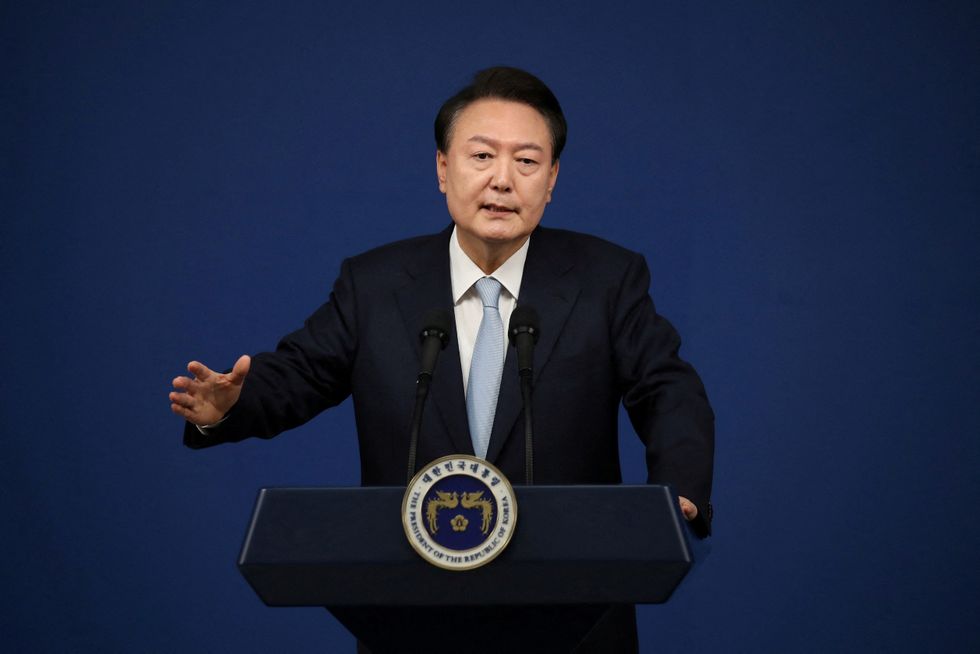South Korean President Yoon Suk Yeol has survived an impeachment attempt after his ruling conservative-aligned party boycotted the vote in the National Assembly.
The opposition-led motion failed to reach the required two-thirds majority needed to impeach the president, as most members of Yoon’s governing party refused to participate.
The vote was triggered following Yoon’s short-lived imposition of martial law, which had drawn widespread criticism across the political spectrum.
Only three politicians from the president’s conservative party took part in the vote, ensuring the motion would not reach the necessary 200-vote threshold.
 REUTERS
REUTERSThe opposition parties, who initiated the impeachment motion, held 192 seats in the 300-member National Assembly.
However, the motion required support from two-thirds of the assembly, equivalent to 200 members, to successfully impeach the president.
The vote was ultimately scrapped without a formal count, as it became clear the required threshold could not be met due to the ruling party’s boycott.
The failed impeachment attempt has highlighted the deep political divisions within South Korea’s parliament.
Yoon’s martial law declaration sparked criticism even within his own ruling conservative party.
Despite their disapproval of the martial law decision, the conservative party remained united in opposing the impeachment motion.
Party leaders appeared concerned that supporting the impeachment could result in losing the presidency to liberal opponents.
The failed impeachment vote is expected to intensify public protests demanding President Yoon’s removal from office.
A recent survey indicates that a majority of South Koreans support the president’s impeachment.
Political analysts predict the vote’s outcome will deepen the existing political chaos in South Korea.
The growing public opposition to Yoon’s leadership, coupled with the parliamentary deadlock, suggests continued political turbulence in the coming weeks.